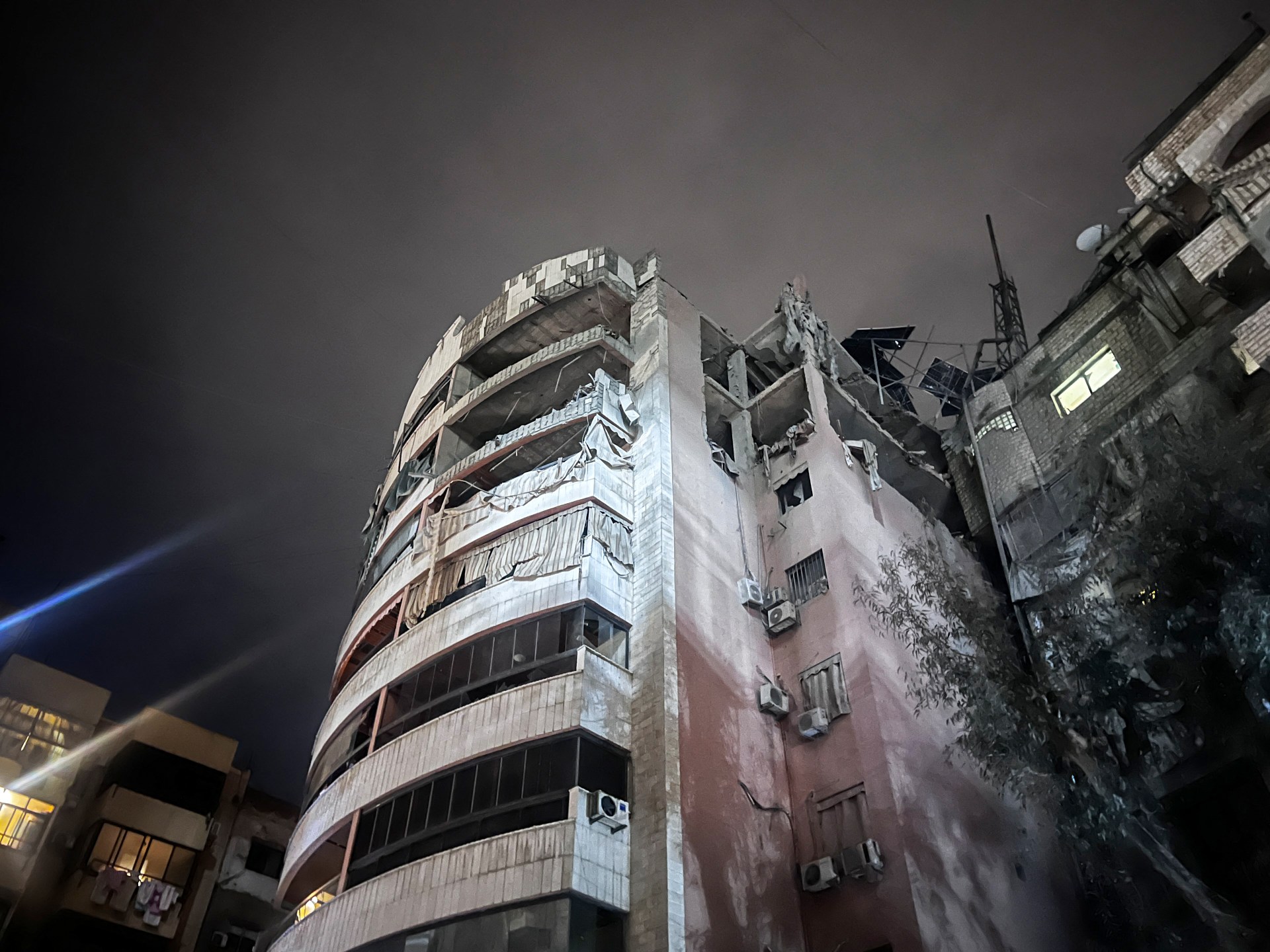Middle East
Israel strikes Lebanon’s Beirut testing fragile truce with Hezbollah | Hamas News

Israel’s military has bombed the Lebanese capital, Beirut, for the second time in less than a week, killing at least four people and threatening the ceasefire it agreed with Hezbollah four months ago.
The attack on Beirut’s southern suburb of Dahiyeh, early on Tuesday, came without warning, according to witnesses.
The Lebanese Ministry of Health said the four people killed included a woman and that seven others were also wounded.
Israel’s military said in a statement that it had targeted Hassan Bdeir, a member of a Hezbollah unit and Iran’s Quds Force, who was assisting the Palestinian armed group Hamas in planning a “significant and imminent terror attack against Israeli civilians”.
The Israeli army did not offer any evidence for the statement. There was no immediate comment from Hezbollah.
Lebanon’s President Joseph Aoun condemned the latest assault, calling it a “dangerous warning” of Israel’s intentions against his country.
“Israel’s persistence in its aggression requires more effort from us in addressing Lebanon’s friends around the world and rallying them in support of our right to full sovereignty over our land,” Aoun said in a statement.
Videos of the aftermath of the bombing showed plumes of smoke rising above Dahiyeh.
They also showed damage to the top three floors of an apartment building and piles of debris covering cars below the structure.
A surveillance camera captured the moment of the Israeli airstrike that targeted a residential building in Dahye, the southern suburb of Beirut. pic.twitter.com/OIopvH7sNf
— Quds News Network (@QudsNen) April 1, 2025
Al Jazeera’s Resul Serdar, reporting from Beirut, said rescue operations were continuing, and added that the latest attack is “extremely worrying” for the Lebanese government since it comes just three days after Israeli forces bombed Beirut for the first time since the ceasefire deal with Hezbollah in November.
That agreement, guaranteed by France and the United States, brought a halt to a yearlong conflict and mandated that Israeli ground troops withdraw from southern Lebanon.
It also called for Hezbollah fighters to withdraw from the south, beyond the Litani River and the United Nations designated temporary border, the Blue Line, and for Lebanese troops to deploy there.
Both sides, however, have accused each other of violations.
Israel delayed a promised troop withdrawal in January and has continued to occupy several hilltops in south Lebanon. It has also carried out near-daily attacks on the country, claiming it was striking Hezbollah fighters and weapons.
Its military launched the attack on Beirut on Friday saying the raid was in response to rockets fired from Lebanon.
Hezbollah has denied any involvement in the rocket firings.
Al Jazeera’s Serdar said there were key differences between the two Israeli assaults on Friday and Tuesday.
“The Israelis say the one that happened in March 28 was in retaliation for rockets being fired from the Lebanese side, but this time, there was no rocket fire,” he said.
“So the question now is will Israel continue attacking the capital of the country?” he asked. “People in Beirut are extremely worried. They say the peace here is really fragile and that any little development could collapse the ceasefire and spark another war.”
Hezbollah leader, Sheikh Naim Qassem, warned on Saturday that if Israel’s attacks on Lebanon continued and if Lebanon’s government does not act to stop them, the group would eventually resort to other alternatives.
Analysts meanwhile blamed the US for Israel’s continued attacks on Lebanon.
Phyllis Bennis, a fellow with the Institute for Policy Studies, told Al Jazeera that the Trump administration has effectively greenlighted Israel’s attacks, not just on on Lebanon, but also on Syria and the occupied Palestinian territory.
“There’s no question that the Trump administration has made very clear that they will not criticise Israel. They will not stop sending the weapons that enable it to continue these attacks,” Bennis said from Washington, DC.
“What we’re seeing now is really an extension of the genocidal war that Israel has been waging in Gaza, to Lebanon, where they’re not only carrying out the attacks in the capital, but have expanded the former UN buffer zone,” she said.
Israel has now “unilaterally collapsed the ceasefire” in Lebanon, but both France and the US – the guarantors of the deal – have stood back and let the Israeli assaults continue, without taking any punitive action, she added.

